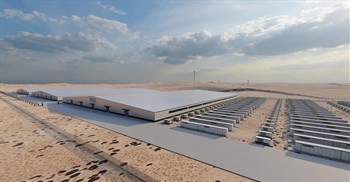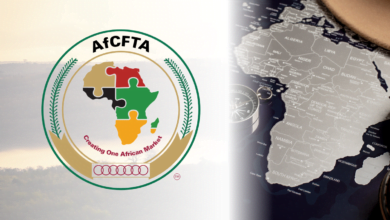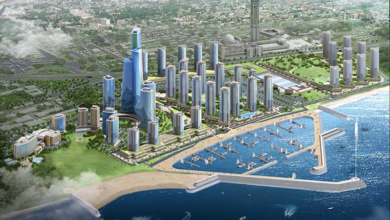Aïssata Diakité is a young Malian woman. At only 27 years old , she has a long curriculum and rich professional experiences. Living between France and Mali, she is very involved in the agricultural sector but also in agribusiness . She is convinced that the emergence of Africa will only take place through agricultural development. ANA met her.
Interview:
Could you tell us about your passion for agriculture?
« I come from Mopti an agricultural town in Mali. From the age of ten, I started developing interest for the agricultural sector. At the time, I was even making my own yogurt. I graduated from TECOMAH, the School of the Chamber of Commerce and Industry of Paris, HEC campus. I got a specialized master « MD2A » Manager of the Development of Agribusiness in Business apprenticeship in 2013. During my studies, from 2009 to 2014, I undertook many missions for several agri-Food companies such as Boucharechas, Meffre, Duval … I was even in charge of affairs at AFNOR Certification, France, department of key customer accounts in agri-food, agro-supply and cosmetics. In parallel to my professional activities, I have always been very involved in the nonprofit field. I started to integrate the Association of Malian students and young graduates in France (ADEM). I was responsible for project management and appointed Corporate Secretary thereafter. The purpose of this association is to promote the integration, education of young people leaving Africa to achieve higher education. I became a member of the Agricultural Initiative Association for Mali (INAGRIM) in 2013. After carrying out many activities related to agriculture, in 2015, I created the APVAE-AO, « Association for the Promotion of Valuation and agribusiness Fair in West Africa. » This year, early 2016, I launched my company of Social Economy and Solidarity in agri-business in West Africa, called Zabbaan Holding. This company was born as a result of the international program accompanying » Entrepreneurs in Africa ». This program aims to enhance local agricultural products through processing as well as the standardization and marketing of finished natural and nutritional products. The second activity of my company is consulting, coaching and development of agricultural sectors. We are trying to facilitate partnerships between national and international actors and are promoting the agricultural youth entrepreneurship.
What actions have you taken to raise awareness of the challenges facing agriculture in Africa?
On June 1, I organized a forum, « Young and Food Security » to put the light on the alarming situation in Africa. Although the continent has enough quality food for everyone , hunger and malnutrition are persisting. It is unacceptable that despite the economic and technological progress, some are deprived of food. I initiated this forum on the theme of agricultural youth entrepreneurship in order to addressing food security issues in Africa. I invite every year, all the stakeholders of civil society to discuss, exchange, to strengthen the capacity of youth to fight hunger and malnutrition through sustainable and responsible entrepreneurship.
I am also a member of ASCPE « Europeans and Eurafrican meetings » and I pilot projects as well. I am regularly asked to speak at conferences, fairs and international conferences on topics related to food, agriculture, youth employment in agriculture and women’s entrepreneurship.
What is your activity within Zabban Holding?
The agri-food sector serves specific challenges to the continent. We are an SME. Zabban Holding has an activity of processing raw materials from agriculture. I produce now smoothies and cocktails made from fruits, flowers, peanut … When conducting feasibility studies, I have benefited from a partnership with a large French school, ONIRIS Nantes . We then conducted over nine months of research and development on raw materials in order to control and to be able to make informed nutritional products for the local market. The second activity is the Zabban Holding advice and support. I am also a consultant because I accompanied several local agricultural cooperatives without forgetting the small processing units. The third activity in which we are engaged is the merging of skills and merging with other young project leaders in the field of renewable energies in the area of technical training in order to share our experiences. Launching a small business in Sub-Saharan Africa is very difficult. The market is saturated with importations . However, it is difficult for a contractor to obtain investment funds. I noticed that people who wish to undertake projects in Francophone Africa have much more difficulties than in Anglophone Africa. For me, it was difficult to start my company. I work more with English financial structures in setting up my project. The business model of investment funds is not too developed yet. We wish to promote local products.
What is your definition of agri-business?
I position myself as an entrepreneur. I take into account the key factors of socio-economic development in the company. On the social pillar I put in place a lot of concrete actions related to the business, renewable energy and economy. I believe that agri-business in Africa should not copy European models, because we do not have the same issues, the same constraints … For me, it is necessary that we find solutions to better organize and structure ourselves our value chain in terms of products. Indeed, in Africa, 70% of the population lives on agriculture, which is huge. In Mali, each ethnic group is associated with a product or agricultural activity. In Africa, it would be necessary to include the standard ISO 26000 for our companies to prevent from the European model. In all enterprises in Africa, this standard addresses the three pillars of sustainable development, namely the societal, environmental and economic pillars. Thus, the company can implement concrete actions to contribute to the development of farming and it differs from one country to another.
According to you, what are the actions needed to develop the agricultural sector in Africa?
Agriculture in Africa is familial. In rural areas, most of the population are not educated . It would strengthen the capacity of the population to have professional training tailored to their situation. Our governments and private entrepreneurs should be involved and help equip and improve the level and update the local agricultural school curriculum. The market is dependent on chemical fertilizers which come from outside and cause many serious diseases among the rural population that is not formed on the agri-business plan. Farmers use fertilizers without protection. Unfortunately, our countries have a lot of copy-pasted European models, without making field studies. We have agricultural policies without clear prospects. In Mali, for instance, the state has subsidized the production of corn, and in 2015, participating in the stock of cereals in Mali, the producers found themselves with stocks of maize, that they could use to make finished products, for breakfast, for example. The main issues are also related to crops and reduce losses. In Sub-Saharan Africa, we registered more than 65% of loss. We are dependent on the season, for six months, farmers will have a lot of fruit, for example, mangoes, guavas, some cereals … at that time prices fall and during the other six months, production is at its lowest. If we develop the food sector, we will not only create jobs but also meet a real demand. One objective is to target food security, even self-reliance of those countries. I think we do not need to double or triple production. We must think about developing the agribusiness sector by transforming products. No need to invest heavily, but only adapted to African needs. If we want to go further, we need to review the partnerships between European and other foreign players, such as Asia, North America, South America. Moreover, in the years to come we will receive climate refugees. And if we fail to feed people, I do not know how we will cope with this phenomenon. There is an emergency!
By Darine Habchi





